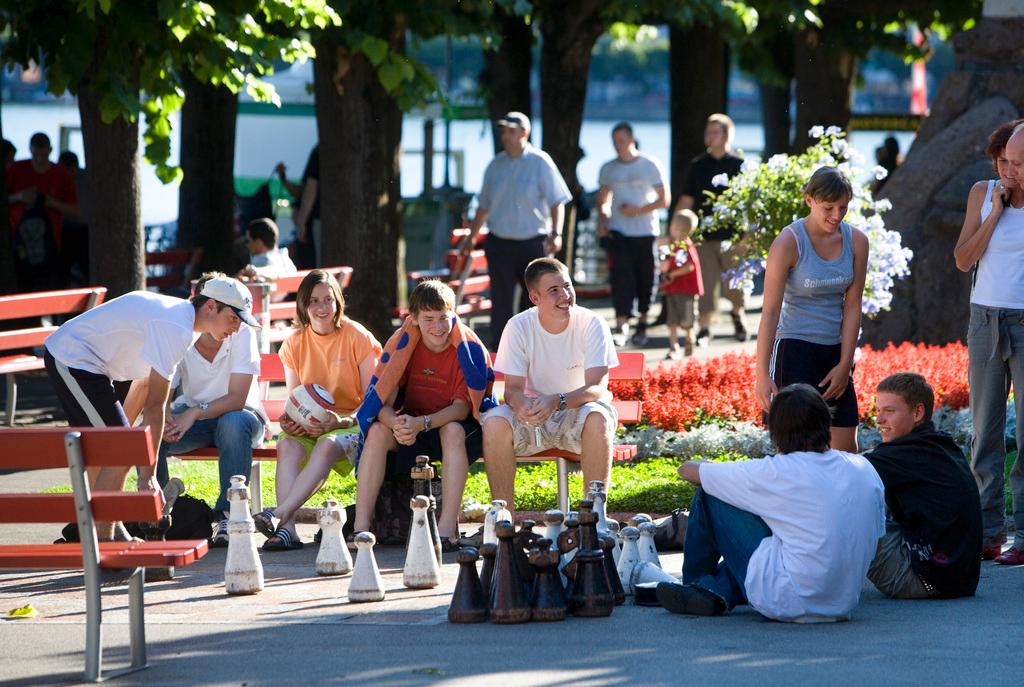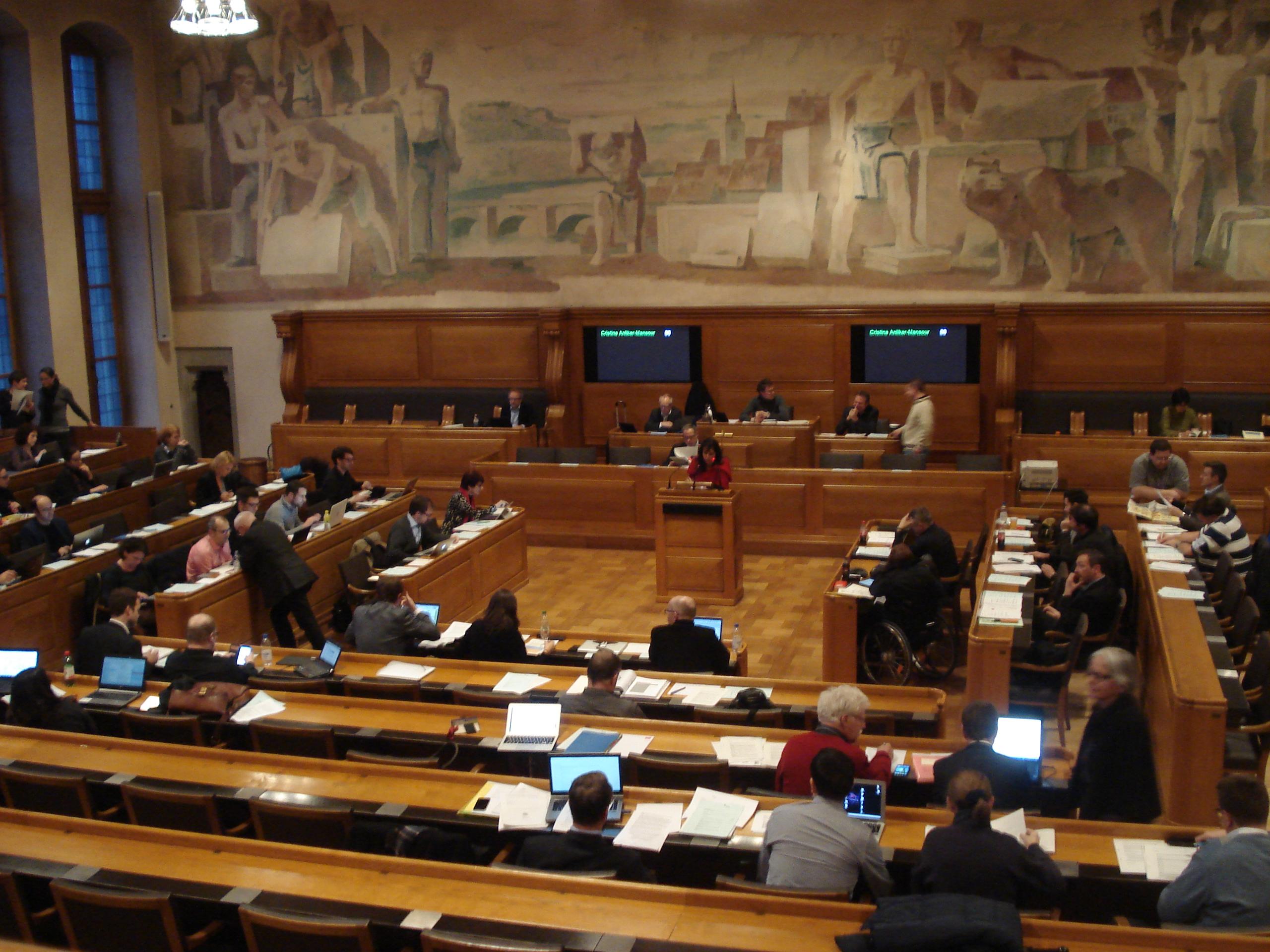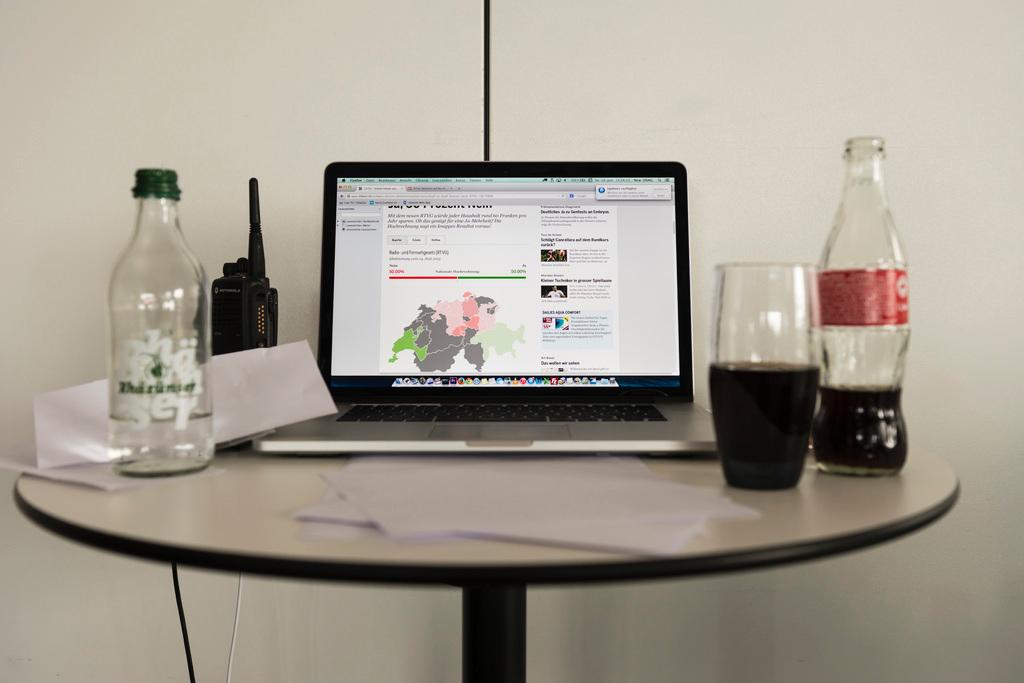Young people reveal interest in Swiss politics

A survey of 17-year-olds in Switzerland shows that many are interested in politics and public affairs – good news for a direct democracy with upcoming parliamentary elections.
The government advisory Commission for Child and Youth Affairs worked closely with researchers from the University of Bern to survey 3,000 17-year-olds across the country. The survey, which began in the fall of 2014, targeted youth born in 1997, meaning that most will be eligible to vote in this October’s election. The survey covered a range of topics from job training and sex education in schools to immigration and work-life balance.
The researchers were pleasantly surprised at the high response rate: over 66%.
“We were afraid it would be difficult to get these young people to respond to the survey, but this was not the case at all – this surprised me in a positive way,” Michelle Beyeler, a professor at the Bern University of Applied Sciences, told swissinfo.ch.
Although the nationalities of respondents were diverse – 20% were foreign nationals, 25% held dual citizenship and just over half held only Swiss citizenship – the vast majority indicated strong attachment to Switzerland and confidence in its educational, political and legal institutions. Fully 91% of respondents expressed confidence that they would be able to receive training in their career path of choice.
Some differences in the responses appeared along regional and gender lines. Youth in the French- and German-speaking parts of Switzerland considered immigration and asylum issues to be Switzerland’s biggest problem today, while young people in Italian-speaking canton Ticino named unemployment.
Gender differences
Men and women came back with different responses to the question of how best to organise family life: 29% of men and 15% of women said they believed that men should work full time, with women staying at home. While 41% of women said that both men and women should work part-time, only 29% of men chose this option.
Another marked gender difference concerned political participation itself: 48% of men compared with 38% of women said they were “quite interested” in politics. Even more striking was the difference in self-confidence: 30% of men said they rarely or never had difficulty understanding political subjects, with only 15% of women choosing this option.
Regarding education, youth in Switzerland prove to be very practically minded. When asked about academic issues, 88% said personal finance should be taught in schools and 83% said the opportunities and risks of social media should be a formal school subject. In addition, 59% thought sex education should be provided in primary school.
When it comes to European politics, 77% of 17-year-olds oppose Switzerland joining the European Union, while 62% think the free movement of people is a good thing for Switzerland. Two-thirds of the respondents said they planned to participate in the Swiss parliamentary elections this October.
The survey to collect these findings was designed by researchers at the University of Bern and the economic and social research institute MIS Trend.

In compliance with the JTI standards
More: SWI swissinfo.ch certified by the Journalism Trust Initiative




You can find an overview of ongoing debates with our journalists here. Please join us!
If you want to start a conversation about a topic raised in this article or want to report factual errors, email us at english@swissinfo.ch.